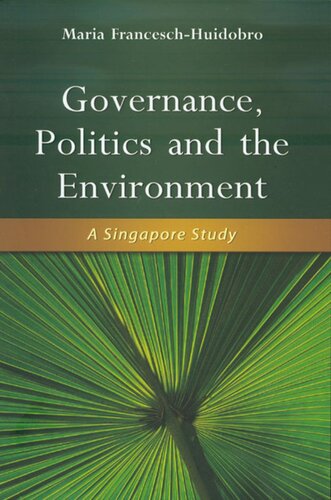

Most ebook files are in PDF format, so you can easily read them using various software such as Foxit Reader or directly on the Google Chrome browser.
Some ebook files are released by publishers in other formats such as .awz, .mobi, .epub, .fb2, etc. You may need to install specific software to read these formats on mobile/PC, such as Calibre.
Please read the tutorial at this link: https://ebookbell.com/faq
We offer FREE conversion to the popular formats you request; however, this may take some time. Therefore, right after payment, please email us, and we will try to provide the service as quickly as possible.
For some exceptional file formats or broken links (if any), please refrain from opening any disputes. Instead, email us first, and we will try to assist within a maximum of 6 hours.
EbookBell Team

4.1
70 reviewsIn the past two decades, research on environmental issues in East and Southeast Asian countries has mainly focused on existing institutional mechanisms of environmental management, the establishment of new environmental management structures, the introduction of incentives to improve natural capital and foster environmental protection, and the culture of environmental or "green" groups. Virtually no rigorous research has been directed into the nature and significance of the existing relationship between government and civil society in individual country studies, with specific reference to the environmental policy sector, or into how this relationship may be evolving. This book explores this connection in Singapore, and what causes it to evolve, through three case narratives. Its rationale is to address this gap in the literature from a "governance theory" perspective that focuses on state adaptation to the external environment and new forms of coordination and collaboration between government and civil society to tackle new societal problems. The application of the "governance theory" approach to specific case studies is itself a topic that deserves much greater study than what it has so far received.